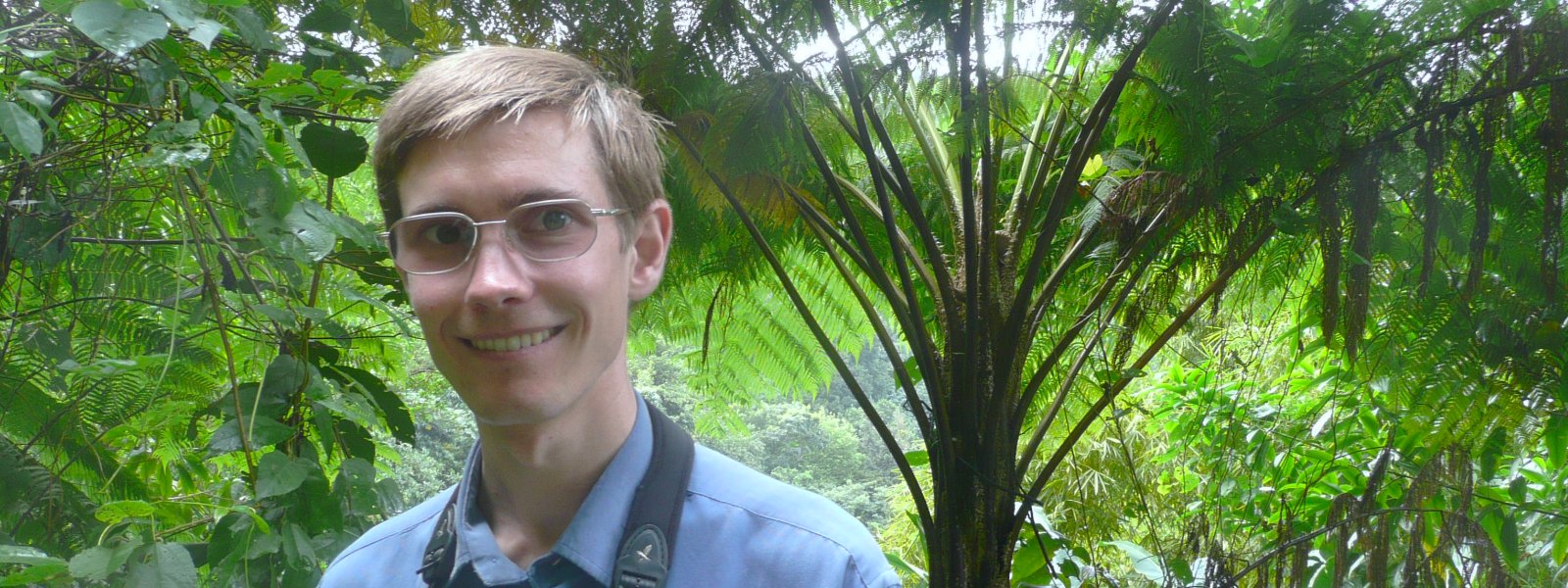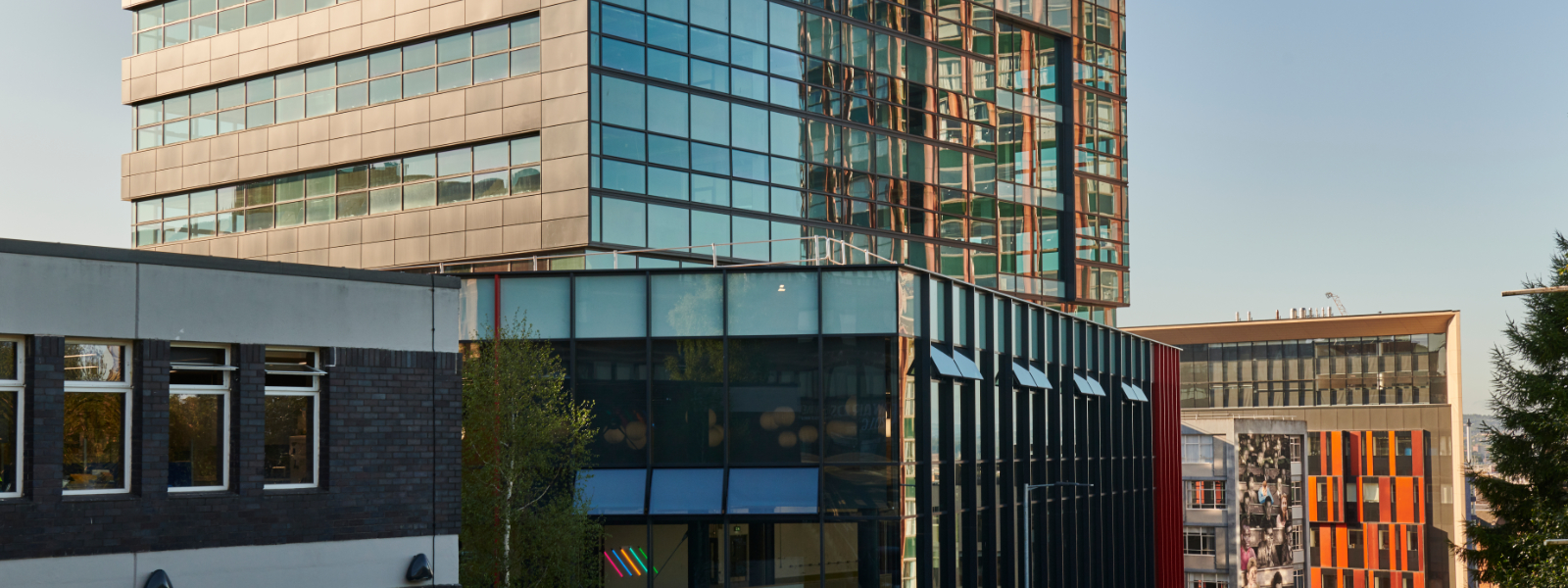
Dr Charles Pigott joined Strathclyde as a Lecturer in Hispanic Studies in September 2021. He tells us about being fascinated by different cultures and languages since childhood and what it means to be an interdisciplinary researcher.
What’s your Strathclyde story?
I joined Strathclyde as a Lecturer in Hispanic Studies in September 2021 after teaching in Mexico for three years. It’s been great working with a fantastic group of colleagues in the Spanish team as well as teaching my own module – Latin America through Indigenous Eyes – which introduces students to the cultural and linguistic diversity of Latin America.
What initially attracted you to Strathclyde?
Major draws were the potential for cross-disciplinary collaboration between Humanities, Sciences and Social Sciences, an institution-wide focus on sustainability, and a drive to include underrepresented voices in the curriculum. These all resonated with my two main focuses in research and teaching: the Environmental Humanities and Indigenous Studies. I was also attracted by different Humanities subjects being based in the same Department, which makes disciplinary boundaries more flexible.
What inspired you to enter your field?
I’ve been fascinated by different cultures and languages since childhood, so researching and teaching them is a form of self-indulgence. I’ve focused on Latin America because of its wealth of cultural, linguistic and ecological diversity. After living in Venezuela (2004-5), I spent time in Peru and Mexico to learn the Incan, Mayan and Aztec languages – still spoken by millions today! My parallel interest in Natural History led to me to pursue the Environmental Humanities after my PhD.
What advice would you give to anyone starting out in your field?
On research, follow your passions while building cross-disciplinary alliances. On teaching, encourage students to cultivate their unique academic voice while supporting them as they become more independent.
What has been the most memorable moment of your career to date?
Travelling to San Francisco in January 2023 to receive an Honourable Mention from the Modern Language Association for my book (Writing the Land, Writing Humanity: The Maya Literary Renaissance, Routledge 2020). It was a thrilling occasion and I’m really grateful to the Faculty of Humanities and Social Sciences for making my journey possible.
What current trends do you see influencing your field?
There is growing awareness of the need for closer collaboration between the Humanities, Social Sciences and Sciences, which are stronger when they work together. Indigenous Studies is gaining recognition as a way to achieve this, for example by offering alternative perspectives on social and environmental sustainability which can complement technical innovations in these areas. Ultimately, global solutions require sensitivity to local conditions and culture is a big part of that.
What are your biggest professional challenges?
Physically, coping with extremes of climate can be a bit of a challenge. When I lived in Peru, most mornings began with a cold shower straight from the glaciers, followed by a de-icing as the sun began to heat up! In the Yucatan Peninsula, where I studied Maya, I had to work in temperatures of over 40 degrees and high humidity, which could be exhausting. Learning Indigenous languages has also been a significant effort – but an immensely rewarding one as it makes you see things from new angles. Finally, being an interdisciplinary researcher means navigating the different academic cultures of each discipline, but the benefits of forging new dialogues outweigh the challenges.
Tell us about any initiatives or projects you are currently involved in.
I’m a member of the UK Young Academy, a multi-disciplinary group of researchers and practitioners from academia and both the public and private sectors who are addressing issues such as Sustainability, Education and Health. As part of this role, in November I attended a workshop on the Future of Science Policy at the Royal Society in London, offering my viewpoint from the Humanities.
I’m leading Strathclyde’s involvement in the Earth Scholars programme, funded by the Scottish Graduate School for Arts and Humanities and the British Council. We’ll be welcoming a cohort of international PhD and Early Career scholars to Scotland in 2024, to work on questions of environmental sustainability. There are other projects in the pipeline but I can’t spill the beans just yet!
Any special thanks or shout-outs you’d like to give to colleagues who have helped or inspired you throughout your career here?
There are so many colleagues who deserve my thanks that naming just a few would be unfair to others. I’m honoured to be working with such a great team in Modern Languages, across the Department of Humanities and in the wider Faculty of Humanities and Social Sciences. Since I joined in 2021, everyone has made me feel at home and part of the big Strathclyde family.
If you could switch jobs with someone, who would it be?
Me in an identical universe.
What keeps you busy outside of work?
I’m a keen birdwatcher and singer (though not usually at the same time).
What is your guilty pleasure?
When I’m in Latin America, I take the opportunity to search for birds like the Flammulated Pygmy-Tyrant and Horned Screamer, while trying not to sing like one.
In one word describe what Strathclyde means to you.
Aspirational
